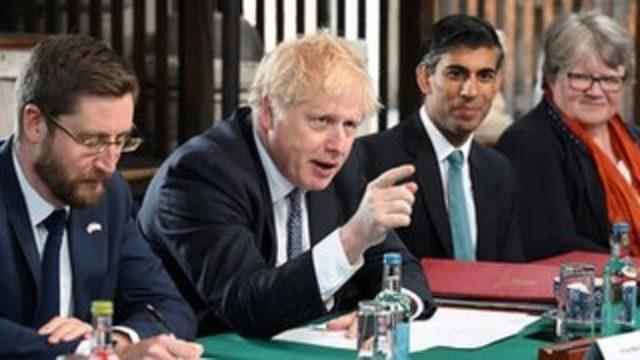In England, the highest official of the government in charge of civil servants, said that the government wants to close 91,000 positions by reducing the number of civil servants by one fifth, in order to save money.
In the electronic letter sent by the Minister of State for the Cabinet and Public Personnel, Simon Case, and reached by the BBC, it is recorded that the aim is to decrease the number of civil servants in 2016.
It is noted that the government expects to save 3.75 billion pounds annually from the public budget in this way. But the public employees union expressed its displeasure, saying it was an ill-considered plan.
WHY NOW?
Secretary of State Case, in a letter to public employees yesterday, acknowledges that layoffs will be difficult and explains that the number of civil servants has increased significantly since 2016, in part due to the coronavirus outbreak. He talks about the need for employees to be better equipped and more productive while reducing staff.
Case also writes that Prime Minister Boris Johnson believes “this issue is all the more important at a time when the government is prioritizing controlling spending and giving the taxpayer the best care in these difficult circumstances.”
Jacob Rees-Mogg, the member of the government responsible for efficient and effective work, also noted that 91 thousand civil servants, which were thought to be closed, were recruited in recent years due to the additional duties brought by the Covid crisis and Brexit. He argued that now the number of former civil servants can be reduced with the return of business in these two areas.
Giving clues about the method they intend to follow in the dismissal of 91 public employees, Rees-Mogg noted that they hope most of the staff will be terminated “naturally” such as retirement, contract expiration or voluntary departure.
But it is not clear what the money planned to be saved in this way will be spent. Rees-Mogg said it would be decided by Finance Minister Sunak.
It appears that Prime Minister Boris Johnson has asked each and every one of them to begin preparations for the public personnel cuts at a meeting with ministers on Thursday.
But at the moment, it is not clear how many personnel will be removed from which ministry and institution.
In 2016, the number of civil servants in the UK was 384,000, the lowest post-World War II civil servants.
However, the United Kingdom has been increasing the number of civil servants since that year in order to cope with the bureaucratic problems in the process of leaving the European Union, and this number reached 475,000 by the end of 2021.
Reaction from the civil servants union
Dave Penman, Secretary General of the public employees union FDA, pointed out that the number of civil servants has increased in the last 6 years due to two unprecedented extraordinary processes, such as Brexit and the Covid crisis, and while the government decided to bring this number back to its former level, he also stated that the public will not be able to do what jobs because of this. He said he needed to evaluate.
Penman drew attention to the fact that some services may be interrupted and not provided, especially in the field of border guard, passport services and health.
“Planning this type of cut without devising an accompanying strategy seems more like a continuation of the government’s struggle to change the culture of civil servants, or worse, a thought that was poorly thought out, rushed, and thus would not result in a more effective public service outcome,” the civil servant union official said. ‘ he said.
The opposition Labor Party, on the other hand, accuses the government of “making too much rhetoric and not doing business” and proposes to support citizens in distress by preparing an extraordinary budget in the face of rising prices.

